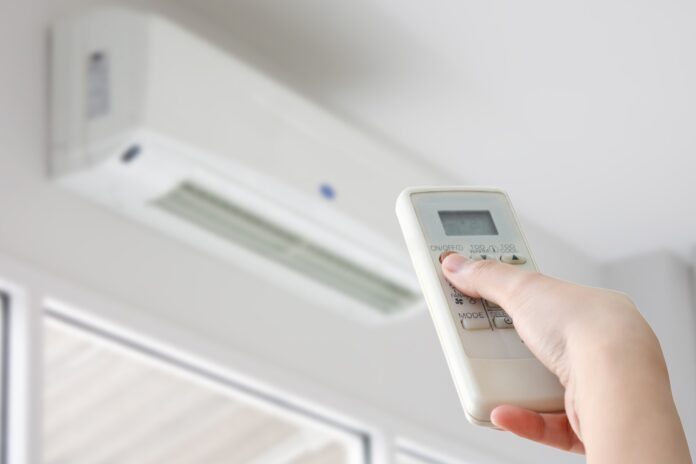
Air conditioning units can be an absolute lifesaver during the summer heat, providing a refreshing retreat from the relentless sun. However, if your AC unit refuses to switch off, it can cause a barrage of issues–from inflated energy bills to an uncomfortably cold indoor environment.
More prolonged operations can wear down an AC unit faster, leading to costly repairs or replacements. In today’s post, we’ll share some straightforward troubleshooting solutions that could potentially save time, stress, and money compared with calling in professional service providers.
Hurliman Heating & Air Conditioning provides an expert guide on troubleshooting AC fan issues; click the following link to learn more.
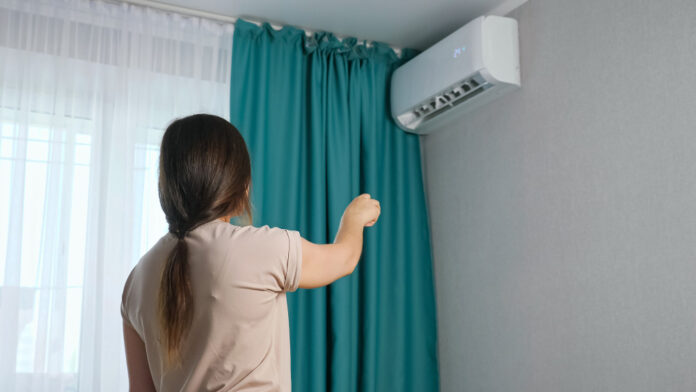
Reasons why your air conditioner fan won’t turn off and how to solve them
We’ve compiled a list of reasons your air conditioner fan keeps running and potential solutions for each one. Here are eight possible causes and their corresponding fixes.
1. Faulty thermostat
If your AC’s fan continues to run even after reaching the set temperature, your thermostat might be the culprit. It could either be incorrectly calibrated or malfunctioning. To check, turn the thermostat to a higher temperature and see if the AC stops. If it doesn’t, you might need to replace your thermostat.
2. Incorrect thermostat fan setting
The fan setting on your thermostat should be on “auto” for it to switch off when the desired temperature is reached. However, the fan will keep running if it’s on the “on” setting. Make sure to check your thermostat settings and adjust them if necessary.
3. Malfunctioning relays
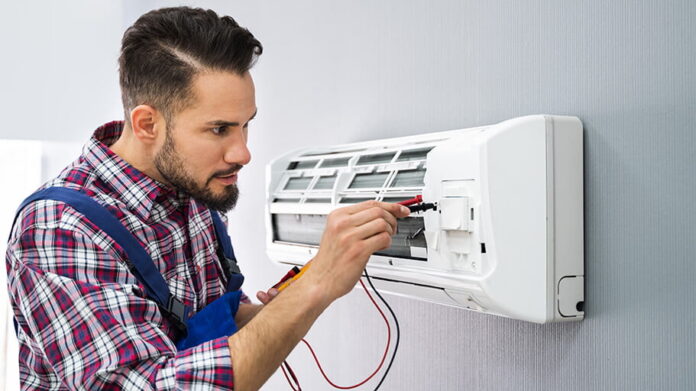
Relays are switches that turn your AC fan on and off. Sometimes, these relays can get stuck in the ‘on’ position, causing your fan to run continuously. You may need a technician to diagnose and replace the faulty relay.
4. Problems with the control board
The control board governs your AC’s operations. A faulty control board could cause the fan to run non-stop. If you suspect this to be the issue, it’s best to call a professional to inspect your unit.
5. Dirty air filter
An excessively dirty or clogged air filter can cause your AC fan to run continuously due to restricted airflow. The system struggles to reach the desired temperature, so it keeps running. Regularly cleaning or replacing the air filter (every 1-3 months) can help avoid this problem.
6. Leaky ducts
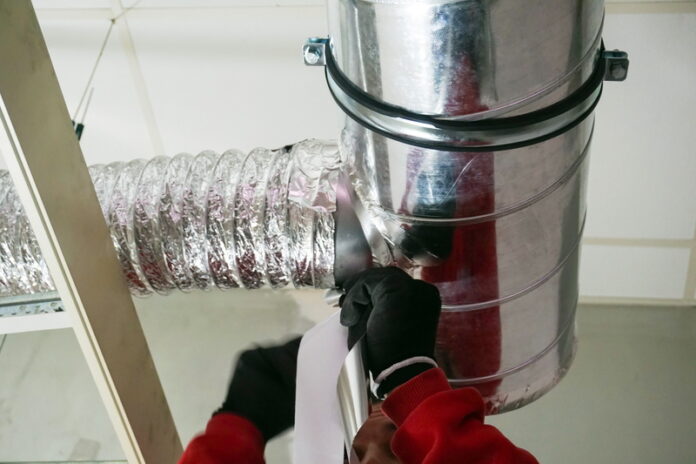
Ducts are pathways that carry cooled air from your AC to different parts of your home. If there are leaks in these ducts, cooled air can escape, leading to your AC running continuously to reach the set temperature. Adequate duct sealing or insulation can resolve this issue.
7. Low refrigerant levels
The refrigerant is what cools the air within your AC system. If there’s a leak or if the refrigerant level is low, your AC might keep running as it struggles to cool your home. You will need a professional to refill the refrigerant and seal any leaks.
8. Oversized AC unit
If your AC unit is too big for the cooling space, it will frequently turn on and off or run continuously. This is because it cools the area quickly, but the rapid cooling also leads to rapid warming, so the unit has to restart soon. A professional can help determine the appropriate AC unit size for your space.
Remember, incorrectly diagnosing and handling AC problems could lead to further damage. If you’re unsure, it’s always better to call a professional.
9. Regular Maintenance: The Cornerstone of AC Upkeep
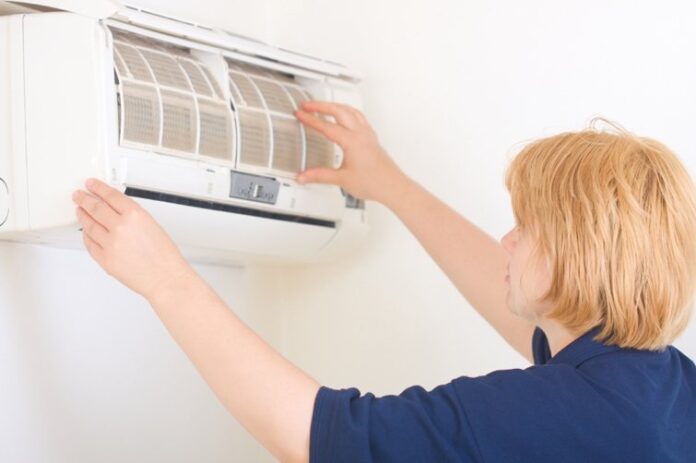
A well-functioning air conditioning (AC) unit is often a household’s unseen hero, especially during the sweltering heat of summer. Thus, emphasizing the significance of regular AC maintenance is crucial. This includes mandatory annual check-ups by professional technicians equipped with the know-how to ensure your unit is in optimal condition. Regular, preventative maintenance serves as a diagnostic tool, highlighting potential issues and mitigating the risk of minor hiccups escalating into major, costly problems. Such interventions are instrumental in prolonging the lifespan of your AC unit, ensuring it operates efficiently, and avoiding unexpected breakdowns.
10. Thermostat Batteries: A Small Component with Big Impact
The thermostat is the command center of your AC unit, and its smooth operation is paramount. For those operating on battery power, a simple, yet often overlooked task is regular checks and timely replacement of batteries. Dead or weak batteries can lead to malfunctions or inaccurate temperature readings, disrupting the comfort of your living space. A routine replacement can circumvent such inconveniences, ensuring consistent performance and avoiding unnecessary stress.
11. DIY Safety Precautions: Tread with Caution
For the enthusiasts inclined towards DIY troubleshooting, prioritizing safety is non-negotiable. Before delving into inspections or cleaning, turning off the power to the AC unit is imperative to avoid any electrical mishaps. Following the manufacturer’s instructions meticulously and wearing appropriate protective gear can safeguard against potential accidents. When in doubt, seeking professional advice is always the safest route, ensuring the well-being of both the individual and the AC unit.
12. Energy Efficiency: Addressing Issues Promptly Saves More than Money
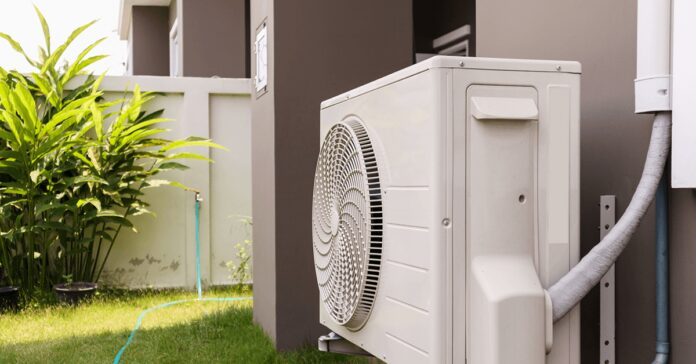
Addressing AC issues promptly isn’t just about comfort; it’s a step towards energy conservation and efficiency. An AC unit laboring due to unresolved issues or running unnecessarily can spike energy consumption, translating to heftier energy bills. Efficient energy use not only alleviates financial strain but also contributes to environmental conservation by reducing the carbon footprint. Opting for energy-efficient models and regular maintenance can amplify these benefits, creating a sustainable cooling solution.
Conclusion
In conclusion, an AC unit that refuses to switch off can be attributed to a variety of causes–from a faulty thermostat or malfunctioning relays to issues with the control board or a dirty air filter. Leaky ducts, low refrigerant levels, or even an oversized AC unit can also lead to this problem. These issues can be addressed by adjusting the settings, regular cleaning, proper sealing, or professional intervention.
A well-maintained AC unit is an investment in comfort and efficiency, ensuring that the sweltering heat remains a mere spectacle observed from the comfort of your cool living space. Providing valuable insights, practical tips, and highlighting the importance of each aspect discussed creates a comprehensive guide that resonates with a diverse readership, turning this into a reliable resource for all.
Always consult a professional before performing maintenance on your AC unit to prevent inadvertently causing further damage to it. A properly functioning system ensures a relaxed and comfortable environment while improving energy efficiency and extending its lifespan. When in doubt, professional advice should always be sought to avoid inadvertently creating additional issues.











